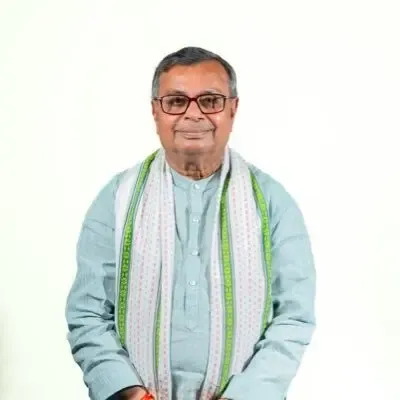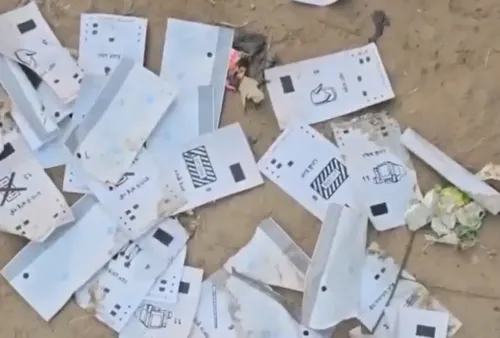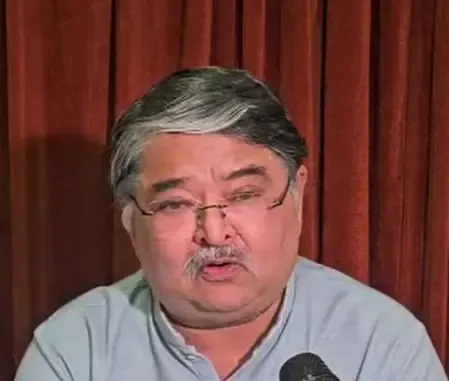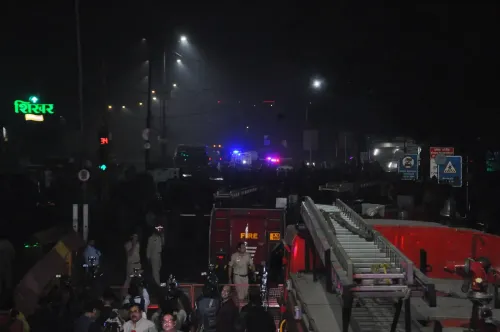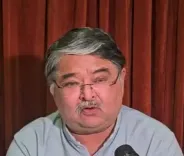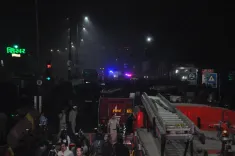Why Did MHA Revoke Sonam Wangchuk's NGO FCRA License?

Synopsis
Key Takeaways
- MHA Cancellation: The Ministry of Home Affairs revoked SECMOL's FCRA license due to significant violations.
- Violations Identified: The breaches included undisclosed fund transfers and mismanagement of foreign contributions.
- Legal Framework: The Foreign Contribution Regulation Act regulates the acceptance of foreign funds by NGOs.
- NGO Accountability: Transparency and adherence to regulations are crucial for NGOs operating in India.
- Possible Appeals: SECMOL has the option to appeal the MHA's decision.
Leh, Sep 25 (NationPress) The Ministry of Home Affairs (MHA) has promptly revoked the FCRA registration of climate campaigner Sonam Wangchuk's Students Educational and Cultural Movement of Ladakh (SECMOL) due to serious FCRA breaches and undisclosed fund transfers, as reported by officials from the Ministry.
An official communication issued by the MHA states: "The 'Students Educational and Cultural Movement of Ladakh (SECMOL)' (hereafter referred to as 'the association') was granted registration under the Foreign Contribution (Regulation) Act, 2010 (hereafter referred to as 'the Act') to receive foreign contributions ('FC') for implementing cultural and educational programs."
"A show cause notice dated August 20, 2025, was dispatched to the association via speed post, followed by an email on September 10, 2025, requesting justification for why its FCRA registration certificate should not be annulled under Section 14 of the Act. In response, the association submitted a reply via email dated September 19, 2025," the order elaborated.
"Upon examination of the association’s submission, several violations were noted: In the financial year 2021-22, Sonam Wangchuk deposited Rs 3.5 lakh into the association’s FCRA account, breaching Section 17 of the Act."
"In response, the association claimed that Rs 3,35,000 was deposited as proceeds from the sale of an old bus purchased on July 14, 2015, from FCRA funds."
"According to regulations, proceeds from any asset acquired with FCRA funds must be deposited solely in the FCRA account."
"The Ministry's conclusion: The association's explanation is untenable. It indicates in Column 2(i)(a) of FC-4 for the financial year 2021-22 that Rs 3,35,000 was received from Sonam Wangchuk as a foreign donation. However, the association clarified this amount as sale proceeds from an old bus acquired from FCRA funds."
"Moreover, it appears that this amount was received in cash, contravening Section 17 of the Act, and this was not properly disclosed in the association’s response."
"Additionally, the Rs 3,35,000 was mentioned in FC-4 as a foreign contribution from Sonam Wangchuk, yet this transaction is absent from the FCRA account, violating Section 18 of the Act."
"In FY 2020-21, local funds totaling Rs 54,600 were improperly deposited into the FCRA account by three individuals (each contributing Rs 18,200), violating Section 17 of the Act."
"The association argued that this amount was contributed by volunteers for their food and lodging but mistakenly transferred to the FCRA account instead of the local account. Our website clearly indicates that Indian volunteers should contribute to the local account, while foreign volunteers should use the FCRA account."
"Despite these guidelines, volunteers accidentally sent funds to the incorrect account."
"The Ministry's assessment: The association acknowledged that local funds were credited to the FCRA account, breaching Section 17 of the Act."
"According to the annual return for FY 2021-22, the association received Rs 4,93,205 from foreign donors, as detailed below, violating Section 12(4)()() of the Act."
"The association claimed: We received Rs 4,93,205 from framstidjorden (a Stockholm-based Swedish organization) for educational programs aimed at raising awareness among youth on issues like migration, climate change, global warming, food security, and organic farming through various workshops and trainings."
"The funds were used strictly in accordance with the organization’s objectives and for the designated purposes. Therefore, all these activities were educational, with no violations."
"The Ministry's conclusion: The association admitted that the donor organization provided funds for studies on the country’s sovereignty, among other topics, and the funds were spent in alignment with the foreign donors’ goals. Foreign contributions cannot be accepted for studies on the nation’s sovereignty."
"This action by the association contradicts the national interest, violating Section 12(4)()(0) of the Act."
"According to the annual return for FY 2021-22, the association returned Rs 19,600 to the donors, violating conditions for registration under Section 12(4)."
"The association acknowledged that Rs 19,600 received from Miss Megha Sanghavi as a foreign donation was returned to her."
"The Ministry's finding: There is no provision in the Act permitting the return of FC to its donor. The association's act of returning FC is likely to indicate the misuse of Foreign Contributions for personal gain or diversion for inappropriate purposes, breaching registration conditions under Section 8(1)(a) of the Act."
"According to the annual return filed by SECMOL for FY 2020-21, it reportedly received foreign contributions of Rs 79,200. However, this amount has not been credited to the FCRA bank account, indicating that such funds may have been received in local bank accounts, contravening Section 17 of the Act."
"In response, the association stated: The Rs 79,200 was directly deducted from staff salaries and fellows' stipends, hence no separate transaction occurred. As it was deducted at source as food fees, it was recorded in the accounting books as food fee receipts and utilized for food expenses."
"The Ministry's finding: The association clarified that Rs 79,200 was deducted from staff salaries, meaning this amount was never distributed to the staff; therefore, treating this amount as other receipts from projects/activities is incorrect, as indicated in Column 2(Ob)(1) of FC-4 for FY 2020-21."
"This suggests that the association’s accounts are poorly managed, with the reporting of this amount in FC-4 violating Sections 18 and 19 of the Act."
"Given the violations outlined under Sections 8(1)(a), 17, 18, 19, and the conditions of registration under Section 12(4)(Q) of the Act, the FCRA registration certificate of the association is subject to cancellation, exercising powers under Section 14 of the Act."
"Therefore, considering the facts and circumstances detailed in the preceding paragraphs, the Competent Authority hereby cancels with immediate effect the FCRA Certificate of Registration number granted to the association 'Students Educational and Cultural Movement of Ladakh.'"
This decision was issued with the approval of the Competent Authority," the MHA order stated.

